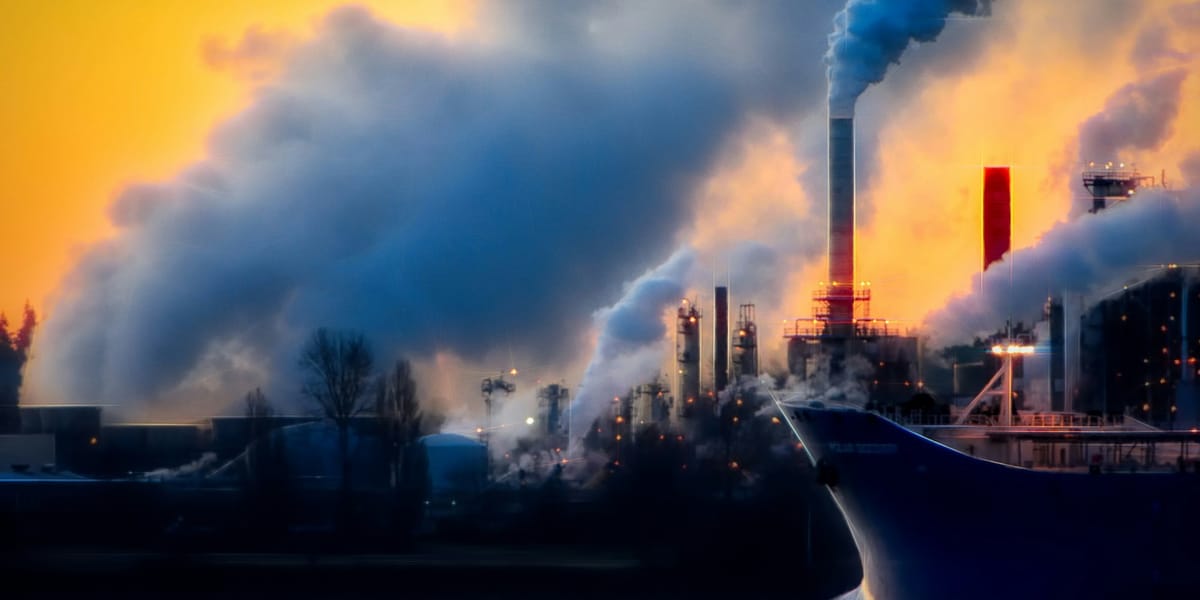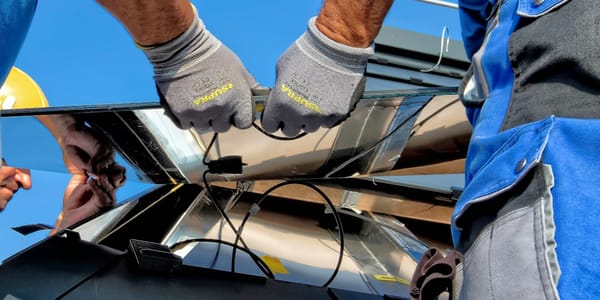Decarbonisation in Industry

Decarbonisation, the process of reducing carbon dioxide emissions, has become a critical focus for industries worldwide as they strive to meet global climate goals. This article explores the various pathways and strategies industries are adopting to achieve decarbonisation, with a particular emphasis on recent developments from 2022 onwards.
Key Drivers of Decarbonisation
The push for decarbonisation is driven by several factors:
- Climate Change Mitigation: Industries are under increasing pressure to reduce their carbon footprint to combat climate change. This is particularly evident in sectors like steel manufacturing, which are traditionally high emitters of carbon dioxide[4].
- Regulatory Requirements: Governments are implementing stricter regulations and setting ambitious targets for carbon reduction. For example, the European Union has set climate and energy goals for 2030 and aims for a climate-neutral Europe by 2050[4].
- Corporate Social Responsibility: Companies are increasingly aware of their environmental impact and are taking steps to improve their sustainability credentials[5].
Decarbonisation Pathways in Key Industries
- Steel IndustryThe steel industry is one of the largest industrial sources of carbon emissions. Decarbonisation efforts in this sector include the development of "green steel" technologies. The Green Steel for Europe (GREENSTEEL) project, funded by the European Union, has identified promising technologies and developed scenarios for decarbonisation until 2030 and 2050[4]. These technologies include hydrogen-based steel production and carbon capture and storage (CCS).
- Energy SectorThe energy sector is pivotal in the decarbonisation process. Transitioning from fossil fuels to renewable energy sources like wind, solar, and green hydrogen is crucial. The European Union's Hydrogen Strategy aims to integrate hydrogen as a clean energy carrier, particularly in sectors where electrification alone is insufficient[12].
- ManufacturingThe manufacturing industry is embracing digital transformation and resource efficiency as part of its decarbonisation strategy. The ECOFACT project, for instance, is developing a platform to optimize energy performance in manufacturing through advanced information and communication technologies (ICT)[10].
- Water IndustryThe urban water industry is energy-intensive, with processes like desalination and water recycling contributing significantly to carbon emissions. Efforts to decarbonise this sector include real-time CO2 emission tracking and forming strategic alliances with the energy sector to improve efficiency and reduce emissions[8].
Regional and Sectoral Strategies
Decarbonisation strategies can vary significantly by region and sector. For example, the Queensland Resources Industry Development Plan outlines a 30-year vision for transforming Queensland's resources industry, focusing on sustainability and resilience in response to global trends like decarbonisation[1][5].
In India, the transportation sector is a major contributor to urban greenhouse gas emissions. The adoption of electric vehicles (EVs) is a key strategy for reducing emissions, supported by government initiatives like the FAME schemes[11].
Challenges and Opportunities
While decarbonisation presents numerous opportunities for innovation and growth, it also poses challenges:
- Technological Barriers: Developing and scaling up new technologies can be costly and time-consuming.
- Economic Impact: Transitioning to low-carbon processes may require significant investment, which can be a barrier for some industries.
- Social Considerations: Decarbonisation efforts must consider the social impact, including potential job losses in traditional industries and the need for workforce retraining[13].
Future Outlook
The path to decarbonisation is complex and multifaceted, involving technological innovation, regulatory support, and societal change. As industries continue to adapt, collaboration between governments, businesses, and communities will be crucial to achieving sustainable and equitable outcomes.
In summary, decarbonisation in industry is a dynamic and evolving field, with significant progress being made across various sectors. By leveraging new technologies and strategic partnerships, industries can reduce their carbon footprint and contribute to global climate goals.
Citations:
[1] Queensland Resources Industry Development Plan https://www.semanticscholar.org/paper/b80ad619f620d46a146f60a5c256a536ffd1e651
[2] Organizations & Initiatives: PhotonicsViews 4/2022 https://www.semanticscholar.org/paper/59d8cebcadd025caa1a173cd964889709ff07d24
[3] IEACon 2022 2022 IEEE Industrial Electronics and Applications Conference https://www.semanticscholar.org/paper/2fab8d87563e565916682aecaa05c8b600ae1e4b
[4] DECARBONISATION PATHWAYS OF THE STEEL INDUSTRY https://www.semanticscholar.org/paper/cc11d267e9f6918e1fa98c3a50986ef0a0c2e82a
[5] The Queensland Resources Industry Development Plan: a 30-year plan to build a resilient, responsible and sustainable resources industry that grows as it transforms https://www.semanticscholar.org/paper/3810bbb6fe6172ccc3cbadd4f7d7419f0830612e
[6] Educating current industrial workforce to embrace data-driven materials development https://www.semanticscholar.org/paper/c57f534f7161a8b09ced4e28324e9dd80003139e
[7] REGIONAL FUNCTIONING SPECIFICS OF THE UKRAINIAN ECONOMY INDUSTRIAL SECTOR IN CONDITIONS OF DEVELOPMENT INSTABILITY https://www.semanticscholar.org/paper/df3bf98db36e6602b29b0a894ab830837ebd4a0a
[8] The water industry and the decarbonisation of cities: A comprehensive review in the context of Cop26 https://www.semanticscholar.org/paper/9b2390d3e908986d93a992037db0083fb9df4721
[9] Concurrent 9. Presentation for: The Queensland Resources Industry Development Plan: a 30-year plan to build a resilient, responsible and sustainable resources industry that grows as it transforms https://www.semanticscholar.org/paper/068570167ac41a82cfdbe516c810d5eb965bf678
[10] ECOFACT Platform Architecture Supporting Manufacturing Energy Management and Holistic Sustainability https://www.semanticscholar.org/paper/d7726459688feca7c5d2472f5ecc580ed8a1b7a8
[11] Electric vehicles for low-emission urban mobility: current status and policy review for India https://www.semanticscholar.org/paper/25dcfe0ca0ad238c0bb5040bb88204fb6f893e15
[12] The Green Hydrogen and the EU Gaseous Fuel Diversification Risks https://www.semanticscholar.org/paper/5cd740e512f37a76dab0f9086c67c5358d6542c9
[13] Regional futures in crisis: lived experience and the generative role of intermediaries https://www.semanticscholar.org/paper/f4078c9c2d03ddb84e409266ddfa1d14a6b3a678



